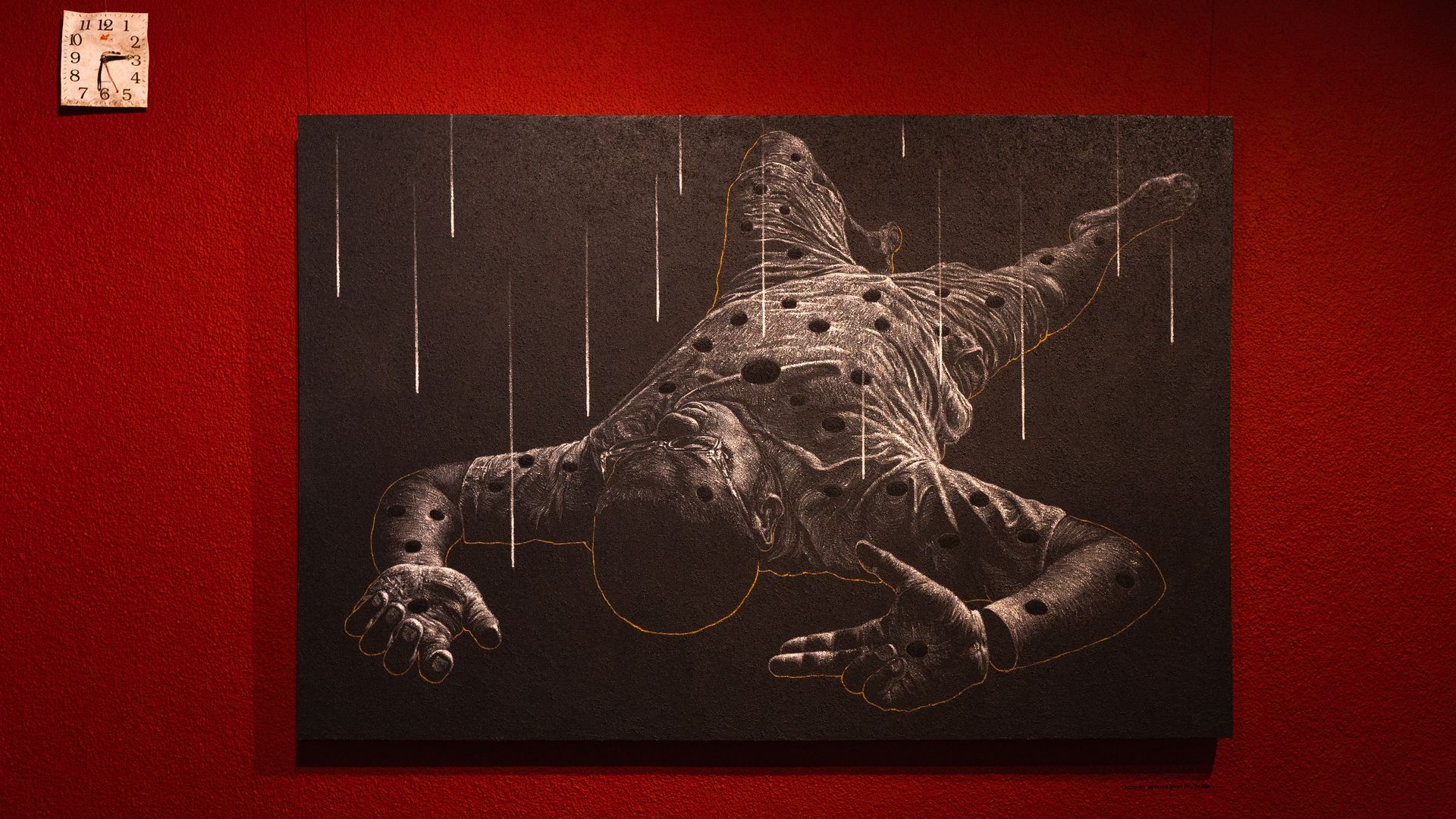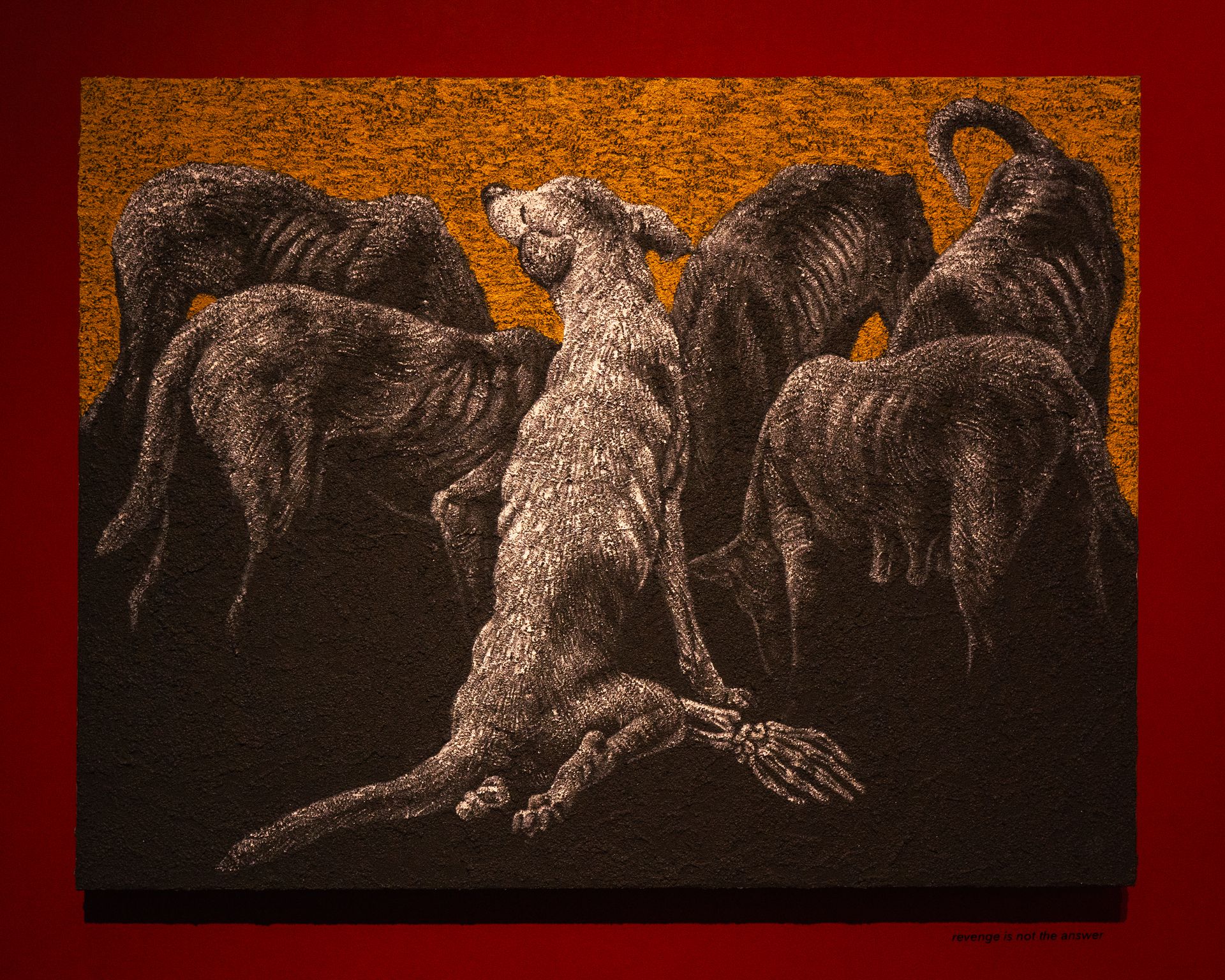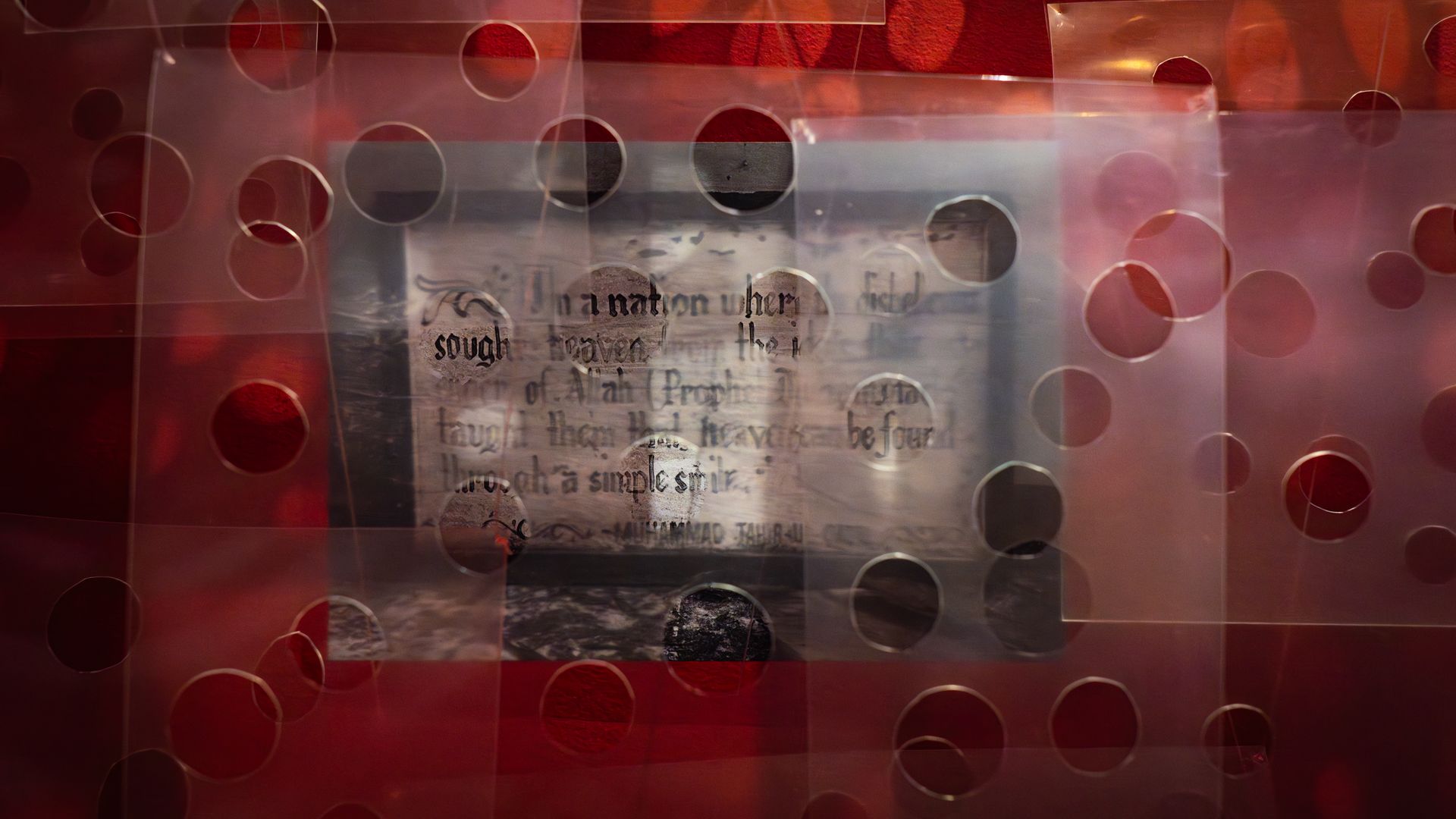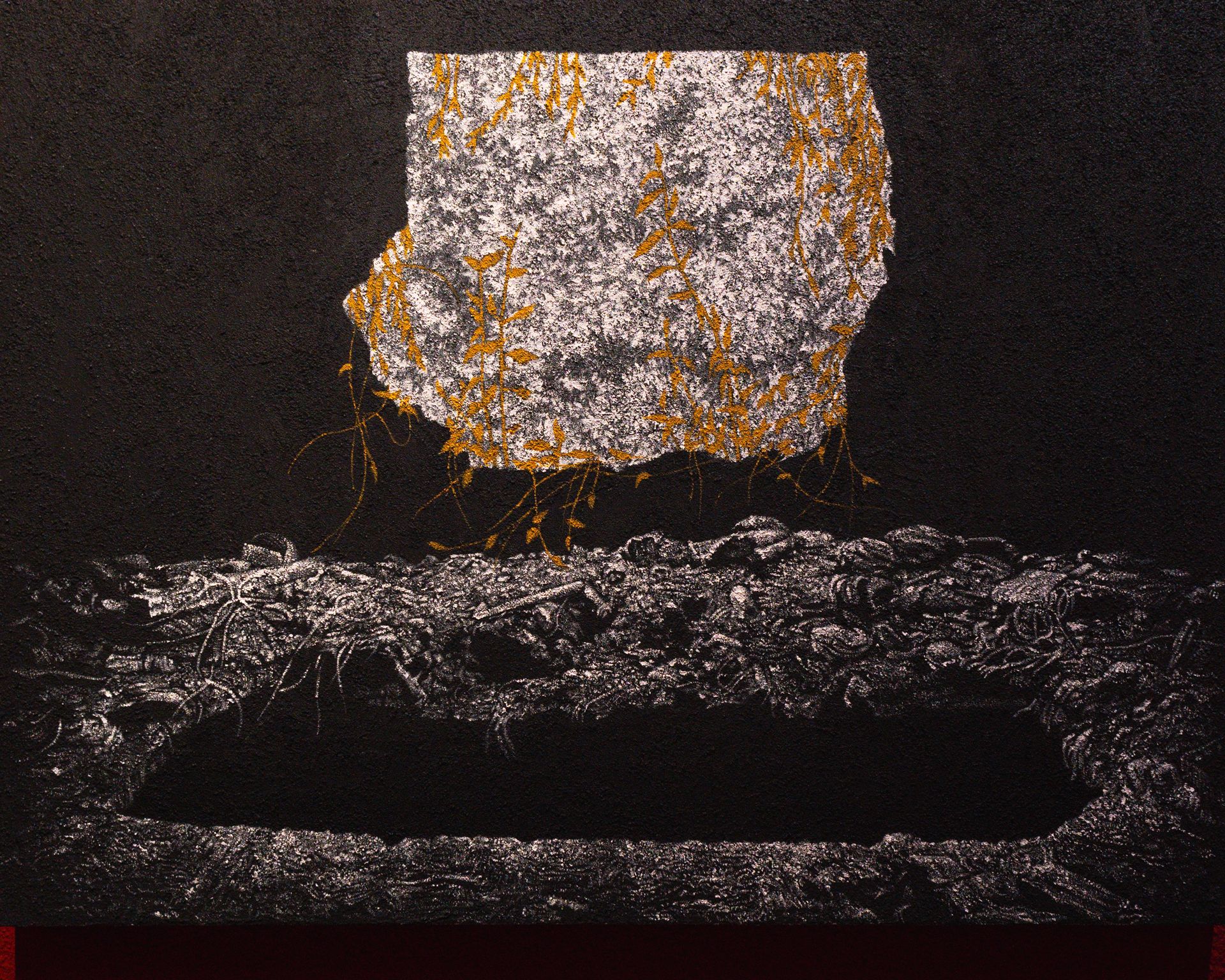What Can Be by Archie Oclos
For years, Archie Oclos has been traditionally engaged with walls purely as passive canvases for artistic expression, but “What Can Be” marks a significant change of perspective in recognizing that walls—as both spatial dividers, physical borders, and structures—can be active repositories of collective memory and trauma, profound silent witnesses to histories and suffering they enclose.
"I hope my absence gives you peace"
Archie Oclos
acrylic on canvas
48 x 60 inches
2024
In his journey to Marawi’s ground zero on its 7th year this year, Oclos has seen the stark remnants of conflict—crumbling facades, bullet-pocked walls, and deserted streets. The physical scars are there, not merely remnants but components of a much larger narrative. Once homes and havens, these walls bore witness to the siege, encapsulating the horrors of war and the deep divisions it fostered among communities with different beliefs and traditions. Overgrown with plants and marked by graffiti, the walls stood as silent testaments to loss and endurance, but also to healing and hope.

"revenge is not the answer"
acrylic on canvas
24 x 30 inches
2024


Space transcends the tangible, which Henri Lefebvre (1991) articulated as a social product and, in fact, a complex social construction that affects spatial perceptions. Oclos’ works also attempt to resonate Michael Foucault’s (1986) notions of heterotopias, that spaces were real places that existed in society and serve as countersites—both mirror, contest, and subvert the spaces we considered benign.
Following Foucault’s notion and theory on space, the works exhibited visually and thematically reflect back the violence and division, thus mirroring and challenging the normative functions of walls. Oclos treats walls not just as physical entities or barriers but as recorders of socio-political commentaries, and walls as mundane elements of structure are challenged and disrupted—that they narrate survival and trauma. “What Can Be” challenges the continuity of walls as neutral and structure of order, but also as markers of wars and conflict, exploring and enriching our understanding of space as deeply imbued with symbolic, cultural, and political significance.

"the weight of unsaid thoughts"
acrylic on canvas
36 x 48 inches
2024
Oclos underscores how walls, once he knew as silent, now voice the untold through their markings and transformations and hold social dialogues about the processes of healing and remembering. This exhibit is an inquiry into the effects of war, understanding the gravity of inner struggles, sins, regrets, and wounds—to reconcile or not, to live or not—from battling his inner and personal demons and moving forward. Oclos attempts to show the small and even smaller details rather than offer a solution and answer to himself and others, and essentially reflect, reconcile, and eventually heal.
Oclos’ personal journey through the war-scarred landscapes of Marawi is also a redefining quest to reconceptualize homes he had witnessed as space and memory—that spaces are psychological and emotional landscapes, shaped by communal memory. By making the invisible visible, Oclos fosters both personal and communal catharsis, positioning his works as a reflective journey through human resilience and recovery. Through his eyes, walls evolve from mere barriers to active bridges, connecting past hurts to future hopes and illustrating the transformative potential of what walls can be—and ultimately, what can be.
- Kawalan
 Runs until: December 14, 2024
Runs until: December 14, 2024
 ANIMA Art Space
ANIMA Art Space
19 R. Nepomuceno St., BF Homes,
Holy Spirit, QC, Philippines 1127